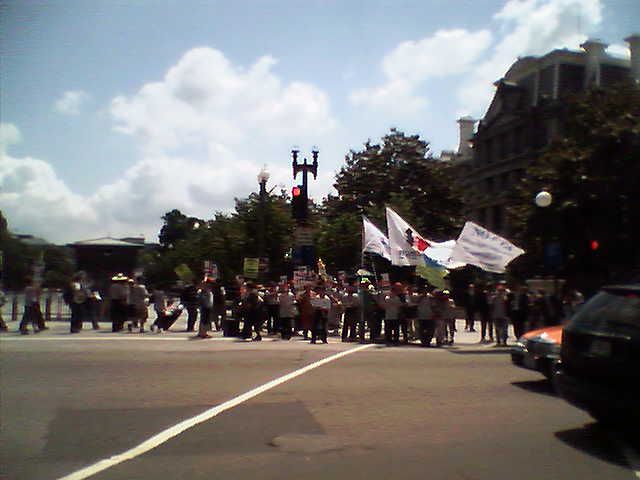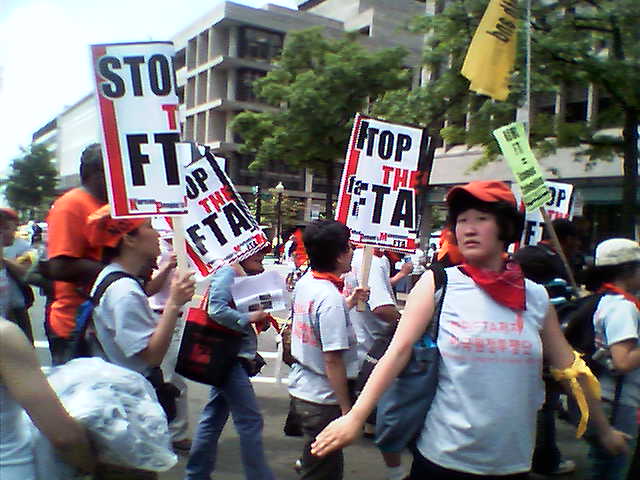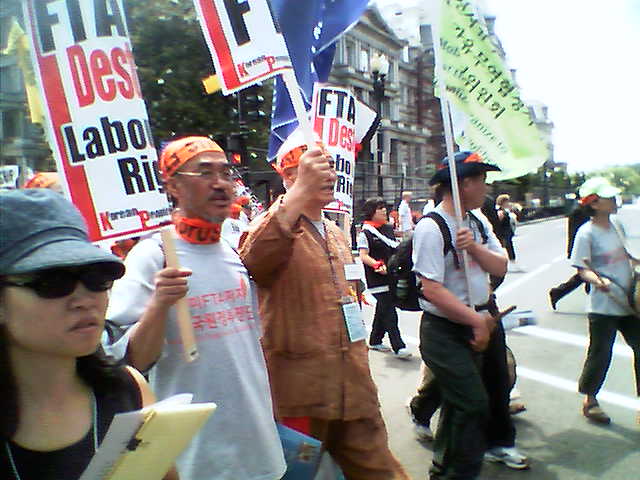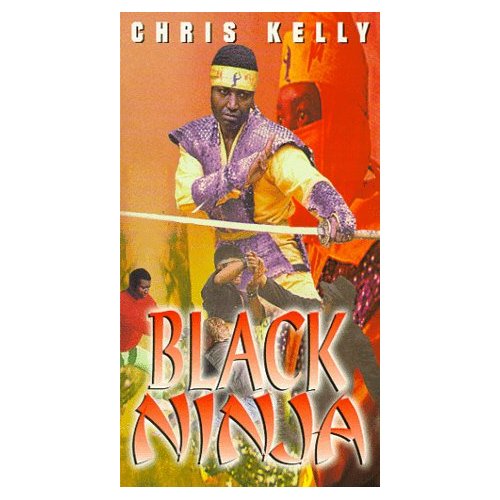I stopped at Book Off, that wonderful oasis of a Japanese used bookshop in midtown Manhattan, on my way home from Connecticut last weekend. I wasn’t intending on actually buying anything, but the first all 4 issues of Osamu Tezuka’s manga Adolf (Adorofu ni Tsugu) at a dollar apiece were too tempting to pass up. It’s an interesting work of historical fiction that answers the question: “What if Jews living in Kobe during World War 2 found definitive proof that Hitler was 1/4 Jewish?” As someone relatively unfamiliar with Tezuka’s work, I’ve been surprised to see depictions of torture and mass murder peppered throughout – I had thought he traded mostly in cute robot boys and little lions, but if you look at his bibliography he’s pretty freakin’ prolific!
What caught my eye, though, was this disclaimer at the end of the first volume (loosely translated):
In this “Complete Works of Osamu Tezuka (published in 1996), the images of many foreigners, mainly blacks and Southeast Asians, make an appearance. Some of those images depict those people as they were when their countries were undeveloped or exaggerate past eras and differ greatly from the present situation. Recently, there have been claims that such depictions are racially discriminatory toward blacks and some other foreigners. As long as there are people who feel uneasy about these images or feel insulted by them, we believe we must seriously listen to those opinions.
However, the exaggeration and parody of people’s features is the most important method of humor for comic books (manga). This is especially prevalent in Tezuka’s works, so people of many countries are the subject to parody. Further, beings from the animal kingdom to the world of the imaginary are very humourously caricatured, not only humans. Not even the author’s self-portrait is an exception to this, with his nose drawn several times longer than it actually is. Also, the author is a person who always and continually held the belief that all hatred and conflict is evil, including that between the civilized and uncivilized, advanced nations and developing nations, the powerful and the weak, the rich and the poor, and the healthy and the sick – beneath his stories runs a strong “love of humanity.”
The reasons we have ventured to print the “Complete Works of Osamu Tezuka” are that the author has already passed on and therefore cannot edit his works. Not only would a third person changing the work of the dead would pose a problem in terms of the person’s dignity, but also cannot be considered an appropriate measure to deal with the problem at hand, and not only that, we have a responsibility to protect works that are regarded as the heritage of Japan’s culture. From the beginning, we oppose all discrimination and will work to eliminate discrimination. We believe this is the responsibility of a publisher. We hope that readers, too, will use this Tezuka work as an opportunity to recognize the fact that various discrimination exists and deepen understanding of this issue.
So, Tezuka’s manga aren’t discriminatory but should be used as an opportunity to reflect on the issue of racial discrimination? Sure, Kodansha. Maybe you’ve gotten smarter in the last 10 years, but I kind of doubt it.
This comment is a direct reaction to moves by a group in Japan called “The Group to Eliminate Discrimination Against Blacks,” a fairly sanctimonious group that originally started without a single “black” member to its name. The group claimed that Tezuka’s “Kimba the White Lion” included racist depictions of black Africans and demanded it be changed to reflect a more culturally sensitive era. The move resulted in the removal of Kimba panels from several museum exhibits dedicated to Tezuka. Indicative of Japan’s general isolation from global debate in general, majority public opinion in Japan seems to be against a movement to eliminate discrimination against blacks led by a hypersensitive NGO.
Unfortunately, I haven’t been able to find any images online that demonstrate the sharp “satire” of Osamu Tezuka, but I wouldn’t be surprised if we saw a few bones through noses in Kimba the White Lion. Next time I’m in Japan or Book Off I’ll be sure to look out for them.
For the record, I have yet to encounter any stereotypical-type images in Adolf, though one of the Nazis is deliberately depicted as lizard-like to emphasize how evil he is.






